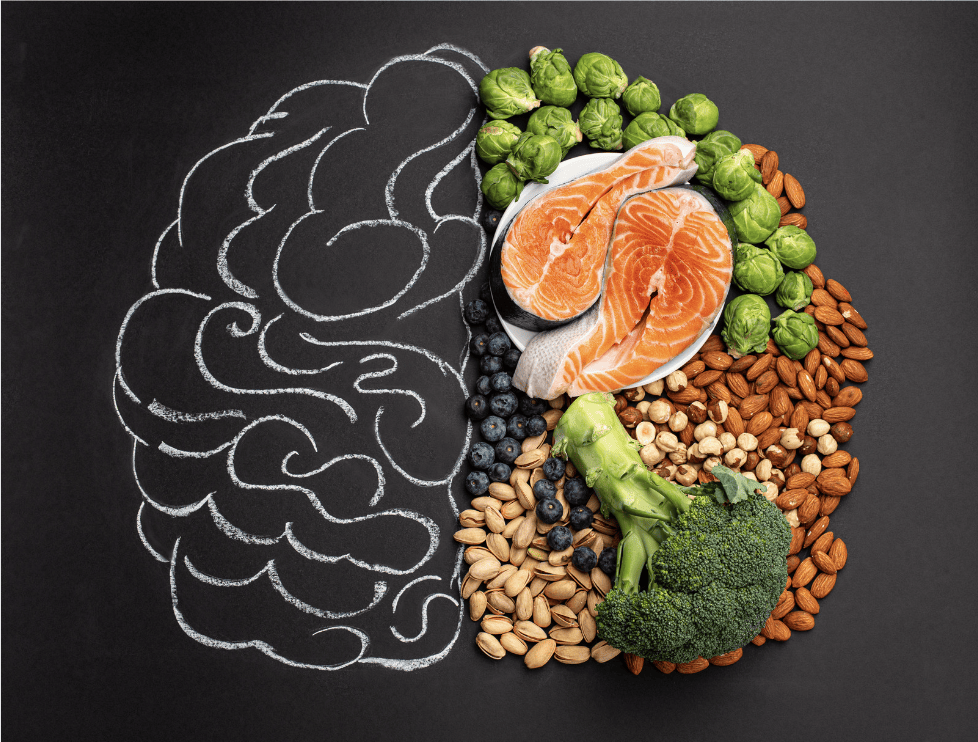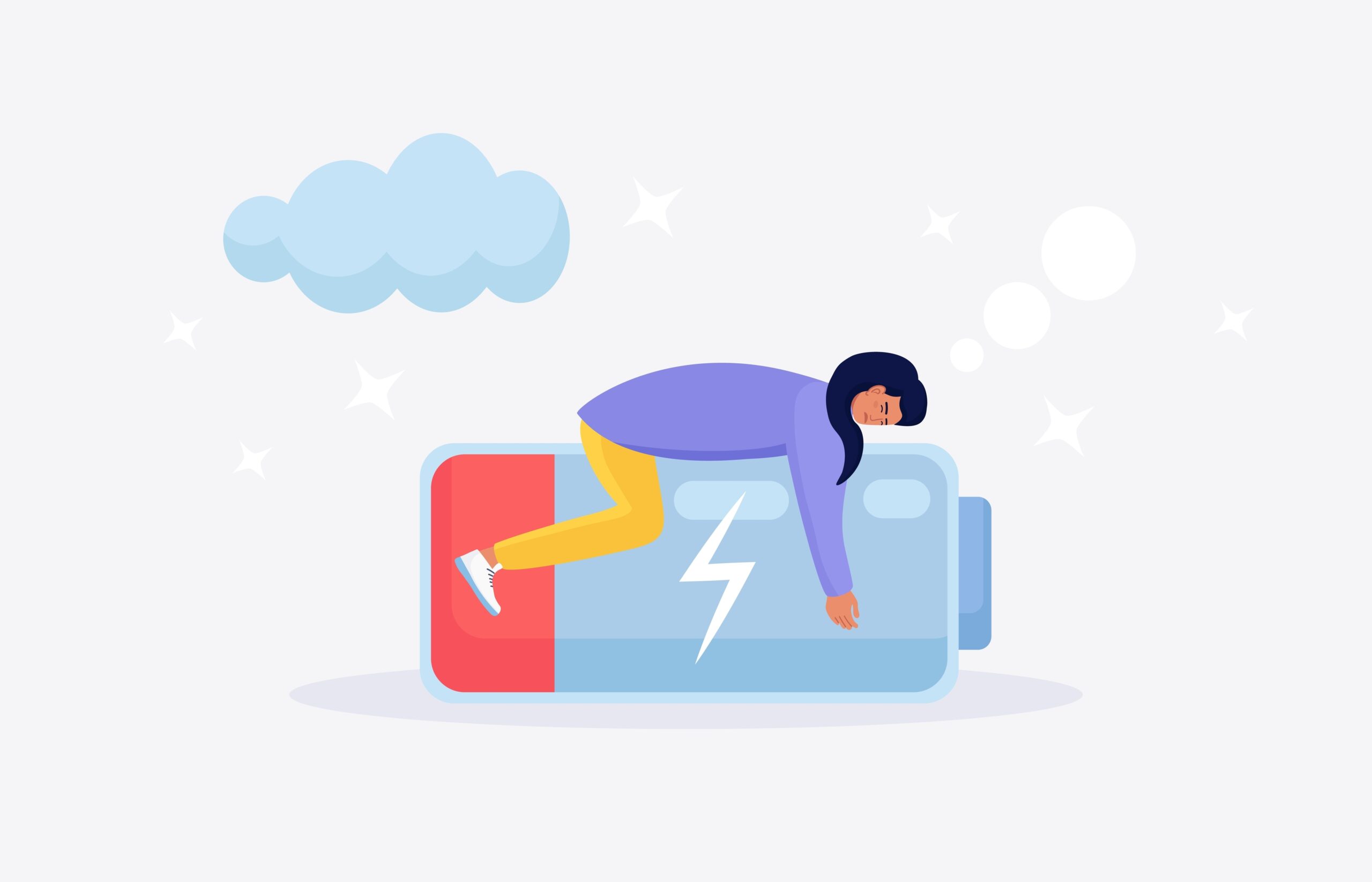Have You Heard About the Habenula? Exploring the Lesser-Known Brain Structure
Every March, institutions around the world celebrate Brain Awareness Week to bring attention to the wonders and mysteries of the brain. With over 86 billion neurons and trillions of intricate connections, the human brain is astoundingly complex.
While most people are familiar with key brain structures like the prefrontal cortex and amygdala, there are also lesser-known regions that play a big role in our cognition, behavior, and well-being.
One such example is the habenula. Despite its small size, the habenula has great influence over our motivations, emotions, and responses to stress.
The goal of this blog is to explore the fascinating role of the habenula and provide tips for supporting overall brain health.
The Habenula: The Brain’s Motivation Kill Switch
The habenula is an almond-shaped brain structure near the pineal gland. It connects the forebrain to the midbrain and limbic system. Though only 5-8 mm wide in humans (about the size of a pencil eraser!), the habenula has powerful effects on our behavior and thought processes.
The habenula acts as a relay station, regulating motivation and reward-based learning. It’s activated when we don’t get the rewards we expect or when we experience adverse circumstances, like not reaching a goal by a specific date.
How does this work?
It receives inputs from the forebrain during stressful or painful situations and then projects signals to regions like the dopamine and serotonin systems, telling them to block these pleasure centers. Essentially, the habenula serves as a kill switch, suppressing dopamine when we encounter unpleasant conditions.
By inhibiting dopamine, our feel-good neurotransmitters, we experience feelings of disappointment, avoidance, and pain. When it functions as it should, the habenula helps us steer clear of harmful situations.
Overactivity, however, can have negative consequences. Dysfunction in the habenula is associated with disorders like depression, addiction, and overeating. When the “kill switch” is overactive, decreased dopamine can lead to apathy, lack of motivation, and loss of pleasure. Further research on the habenula could uncover promising therapeutic targets for treating common mental health conditions associated with such hyperactivity, like depression.
Nourishing Your Brain: Lifestyle Habits for Long-term Health
Our daily habits and behaviors have a profound impact on our brain health now and as we age. Here are some science-backed ways to nourish your brain.
Importance of a Balanced Diet
Fueling your brain with a healthy diet dramatically impacts its function and longevity. Try eating foods rich in omega-3s, like fish, chia seeds, and flax seeds, as they boost neuron growth and neuroplasticity. Antioxidant-rich fruits and vegetables can protect delicate brain cells from damage. It’s also been shown that vitamins B, C, D, and E nourish the brain. Finally, staying hydrated improves cognitive function and mood.1
How Regular Exercise Impacts Brain Health
Aerobic exercise sparks neurogenesis, the creation of new brain cells, in the hippocampus, which can enhance memory and learning. Studies have also found that strength and resistance training builds cognitive resilience. As little as two days per week can improve executive functioning and problem-solving.2
Prioritize Quality Sleep
Getting between seven and nine hours of sleep a night allows our brains to store memory and any new information we learn during the day. Poor sleep, on the other hand, hampers focus, decision-making, and emotional regulation. You can improve sleep hygiene by limiting blue light exposure at night, cutting back on stimulants, and establishing a calming pre-bed routine.
Mental Stimulation and Cognitive Activities
Our brains can create new neural connections when we prioritize continued learning and challenge our thinking. Doing something good for your brain, like strategy games, puzzles, and artistic pursuits, helps build your cognitive reserve.
Additionally, social interactions keep the mind nimble. Pursue novel and engaging activities that tap different areas of the brain, like community engagement.
Stress Management Techniques for Brain Health
When stress hormones like cortisol are elevated over long periods, it damages parts of the brain, like the hippocampus, habenula, and prefrontal cortex. This impairs learning, memory, and decision-making. Chronic stress also reduces gray matter volume, which can result in cognitive impairment and movement issues.
How can we combat stress and protect our brains?
Mindfulness meditation strengthens the prefrontal cortex and decreases amygdala reactivity, calming our stress response. Just 10 minutes a day can induce promising neuroplasticity effects.3 Start small by focusing on your breath, being present, and observing your thoughts without judgment.
Friends and social connections also play an important role in this conversation. Social isolation harms the brain’s ability to form new memories and raises dementia risk. Nurturing friendships lowers stress and boosts cognitive resilience. Find community groups or reach out to loved ones to strengthen your support circle (and your mind).
Habenula and Mental Health: Seeking Professional Support
Imbalances in brain regions like the habenula may contribute to disorders like depression, anxiety, addiction, and overeating. If you notice symptoms like loss of interest, fatigue, feelings of worthlessness, inability to focus, or withdrawal from others, take some time to decide if you should look for help.
Importance of Seeking Professional Help and Treatment Options
Mental health issues require compassionate, specialized care from a trained therapist or counselor. Treatments like psychotherapy, medication, brain stimulation therapy, and mindfulness practices can get you on the path to recovery. Work with your healthcare professional to chart the best treatment plan for you.
Therapeutic Interventions Targeting the Habenula
Research shows deep brain stimulation of the habenula may help treatment-resistant depression.4 Another treatment option could be specific medications that can influence dopamine and serotonin regulated by the habenula.
More research is needed, but modulating the habenula’s function holds promise for improving mental health.
Take Control of Your Brain Health
While tiny, the habenula has a mighty influence on our inner world. By taking proactive steps like eating nourishing foods, exercising, getting quality sleep, managing stress, and getting professional support when needed, we can all promote our brain health.
Use Brain Awareness Week as inspiration to learn more about your amazing brain and consider how to support your mental well-being through daily habits and lifestyle choices. Our brains allow us to live meaningful, connected lives, so it’s worth taking good care of them!
References
- Zhang, N., Du, S. M., Zhang, J. F., & Ma, G. S. (2019). Effects of Dehydration and Rehydration on Cognitive Performance and Mood among Male College Students in Cangzhou, China: A Self-Controlled Trial. International Journal of Environmental Research and Public Health, 16(11). https://doi.org/10.3390/ijerph16111891
- Liu-Ambrose, T., Nagamatsu, L. S., Graf, P., Beattie, B. L., Ashe, M. C., & Handy, T. C. (2010). Resistance Training and Executive Functions: A 12-Month Randomised Controlled Trial. Archives of Internal Medicine, 170(2), 170. https://doi.org/10.1001/archinternmed.2009.494
- Lardone, A., Liparoti, M., Sorrentino, P., Rucco, R., Jacini, F., Polverino, A., Minino, R., Pesoli, M., Baselice, F., Sorriso, A., Ferraioli, G., Sorrentino, G., & Mandolesi, L. (2018). Mindfulness Meditation Is Related to Long-Lasting Changes in Hippocampal Functional Topology during Resting State: A Magnetoencephalography Study. Neural Plasticity, 2018. https://doi.org/10.1155/2018/5340717
- Akhoondian, M., Rashtiani, S., Khakpour-Taleghani, B., Rostampour, M., Jafari, A., & Rohampour, K. (2023). Lateral habenula deep brain stimulation alleviates depression-like behaviors and reverses the oscillatory pattern in the nucleus accumbens in an animal model of depression. Brain Research Bulletin, 202, 110745. https://doi.org/10.1016/j.brainresbull.2023.110745













